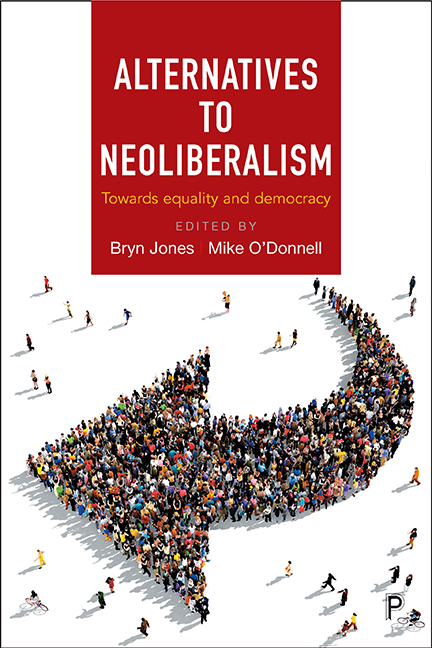Book contents
- Frontmatter
- Dedication
- Contents
- List of figures, tables and boxes
- List of abbreviations
- Notes on contributors
- Acknowledgements
- Foreword
- Editors’ preface
- Introduction: The open-market society and its opponents: an overview
- Part One Alternative paradigms and perspectives
- Part Two Reform within economic and governance restraints: pushing the boundaries
- Part Three Economic and political democracy: restoring the market-civil society balance
- Conclusion: A Brexit from neoliberalism?
- Index
eight - The corporate cuckoo in the neoliberal nest: reconnecting civil society with big business
Published online by Cambridge University Press: 05 April 2022
- Frontmatter
- Dedication
- Contents
- List of figures, tables and boxes
- List of abbreviations
- Notes on contributors
- Acknowledgements
- Foreword
- Editors’ preface
- Introduction: The open-market society and its opponents: an overview
- Part One Alternative paradigms and perspectives
- Part Two Reform within economic and governance restraints: pushing the boundaries
- Part Three Economic and political democracy: restoring the market-civil society balance
- Conclusion: A Brexit from neoliberalism?
- Index
Summary
The Introduction of this book described how neoliberalism's supposed ‘liberation’ of markets had in practice empowered large corporations ‒ firms whose accountability to market disciplines is, at best, weak. We described corporations and their executive controllers as the new barons. Elsewhere they have been labelled as oligarchs or power elites (Jones, 2015; Savage and Williams, 2008; Williams, 2006). Neoliberal deregulation, economic policy and political partnerships have gifted corporations and financial business almost unparalleled freedoms. As a consequence, it has furthered their divorce from the status business once had as an integral part of civil society. Big business, together with its sympathisers in the media and academia, masks corporations’ current dominance over various sectors of civil society by propagating a narrative of partnership and social citizenship. Relevant details of this hegemony are described in the first section of this chapter
Any alternative to the neoliberal system aiming for reform, or even transformation of this corporate dominance needs to consider the various attempts and proposals made by social movement actors to limit or redistribute the concentration of power. The second part of this chapter therefore examines significant cases of social movement critique and contestation of corporate powers. These efforts are diverse and multifaceted. There are calls for institutional reforms, such as licensing of corporate operations, for more focused changes to their governance, right through to outright abolition or transformation of corporate ownership by abolishing the key legal and political privileges which guarantee corporate power and autonomy.
However, the most pronounced theme of campaigns by civil society organisations (CSOs) is for a sharpening and strengthening of corporate accountability. Its importance is indicated by its ubiquity across social movements; from the more cautious protagonists for Corporate Social Responsibility (CSR) to social and environmental justice campaigns within the heterogeneous sustainability and social justice movements. As well as its target status for social movements, concentration upon this business type, rather than on, say, privately owned or quasi-state enterprises, is warranted by the persistent historic and cultural significance of the share traded, executive managed (ST/EM) corporation in the Anglo-American sphere. After presenting the charge sheet against corporate power, the final three sections of this chapter review the social movement challenges before recommending a limited, but critical focus on reopening the ST/EM firm to civil society influence by changing the balance of control between shareholder-stakeholders and the presently unaccountable executive class.
- Type
- Chapter
- Information
- Alternatives to NeoliberalismTowards Equality and Democracy, pp. 159 - 174Publisher: Bristol University PressPrint publication year: 2017

